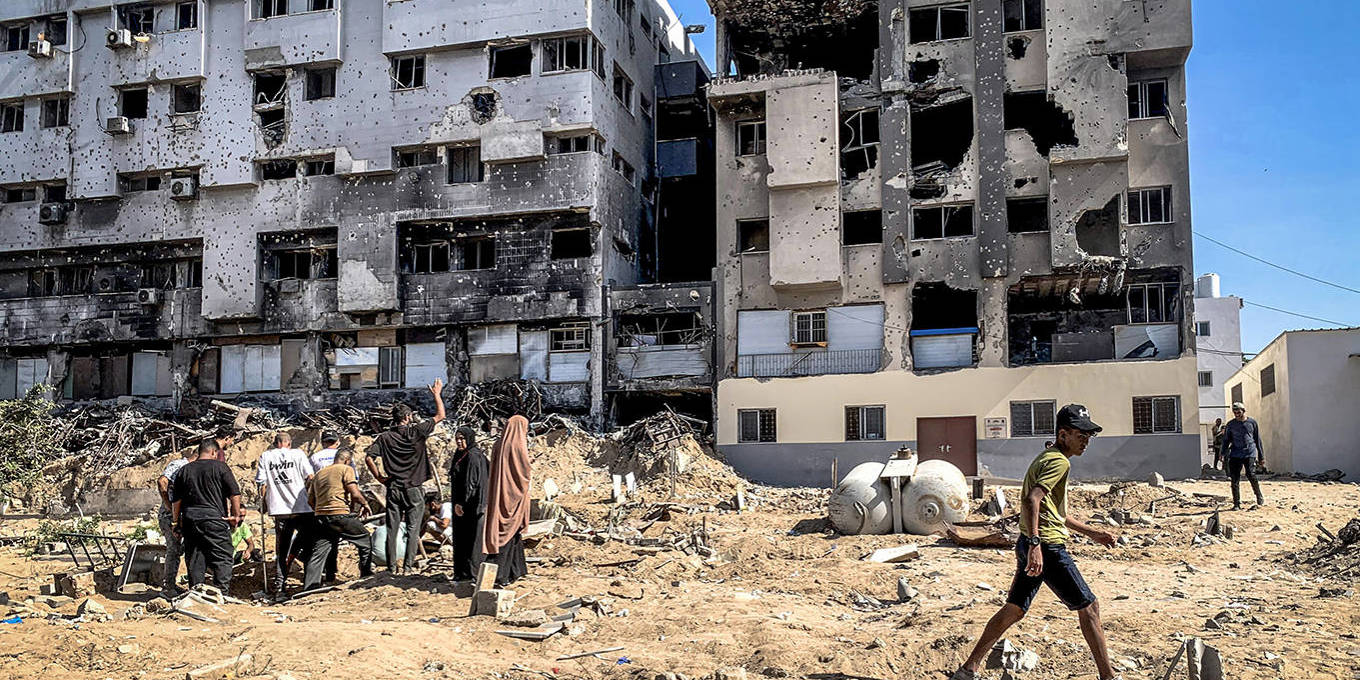
NEW HAVEN – Following a flurry of announcements at last month’s United Nations General Assembly, more than 150 countries – including the United Kingdom, Canada, Australia, France, and Portugal – now recognize Palestine as a state. With this move, world leaders are expressing their outrage over Israel’s conduct in its war with Gaza following Hamas’s attack on October 7, 2023. Their outrage is justified: the Israeli government has repeatedly violated international humanitarian law, particularly in its systematic attacks on Gaza’s health-care system.
But offering symbolic support for Palestinian sovereignty is not enough to hold Israel to account. Similarly, diplomatic pressure alone will not end Israel’s flagrant violations of international law. Governments must address Israel’s destruction of Gaza’s health-care system. Failure to do so would create a dangerous precedent for future conflicts.
The rules of war are clear: hospitals are to be protected. The Geneva Convention IV, to which Israel is a party, stipulates that “[c]ivilian hospitals organized to give care to the wounded and sick, the infirm and maternity cases, may in no circumstances be the object of attack, but shall at all times be respected and protected by the Parties to the conflict.” There are similar protections for vehicles and other conveyances transporting civilian patients.
But over the last two years, Israel has targeted health-care infrastructure in Gaza, and to a lesser extent in the West Bank. As an emergency medicine physician and global health researcher, I have followed this situation closely. In a recent study, my co-authors and I spatially analyzed the coordinates of the more than 800 reported attacks on healthcare in Gaza between October 7, 2023, and June 30, 2024, and their proximity to hospitals. In Gaza, 50.4% of the attacks involved damage to physical infrastructure and 49.6% involved harm to health-care workers.
Many of Israel’s attacks were clustered around three of Gaza’s largest hospitals: Nasser Hospital in Khan Younis, al-Shifa Hospital in Gaza City, and al-Awda Hospital in Jabalia. These continue to be hotspots, as evidenced by the widely circulated footage of yet another attack on Nasser Hospital in August. Journalists and first responders were among those killed in the “double strike,” which Israeli Prime Minister Benjamin Netanyahu described as a “tragic mishap.”
The consequences have been devastating. Fewer than half of Gaza’s hospitals are functional (all of them only partially), more than 2,000 people have been killed or injured in Israel’s attacks on health-care infrastructure, and Israeli forces have unlawfully detained at least 405 Palestinian health-care workers, some of whom have been reportedly tortured. Even if a ceasefire takes effect immediately, it will take decades to rebuild Gaza’s health-care system.
As a physician, I know that there is no hierarchy of suffering. International law is explicit in protecting hospitals and medical personnel because they are essential to preserving life. To accept their deaths and injury as collateral damage is to call into question our own humanity.
Under international law, a hospital loses its protected status if used for military operations that harm the enemy. Israel has relied on this argument to justify its attacks on medical facilities, claiming that they shelter Hamas fighters. But these allegations are “grossly exaggerated,” according to Andrew Cayley, a former lead prosecutor at the International Criminal Court (ICC) who oversaw its Palestine investigation. Without independently verified evidence to substantiate Israel’s claims, it has no grounds to flatten hospitals and kill civilian personnel.
World leaders must reaffirm their commitment to international humanitarian law. In 2024, the ICC issued arrest warrants for leaders of Hamas and Israel after investigations of, respectively, the October 7 attack and subsequent war crimes in Gaza. The UN Security Council could refer Israel’s attacks on Gaza’s health-care system to the ICC, empowering the Court to investigate and prosecute. A Security Council referral is one of the few ways the Court gains jurisdiction over non-member states like Israel, as was the case for Darfur in 2005 and Libya in 2011. To be sure, this path faces a major obstacle: the United States would likely veto a Security Council referral focused on Israel.
Instead, a resolution that denounces attacks on healthcare globally could break the political gridlock and go a long way toward affirming international law. The last Security Council resolution addressing this issue passed in 2016. Since then, military technologies have evolved and attacks on healthcare have intensified, including recent cases in Ukraine, Sudan, and Syria. Civilian casualties are actively tracked and verified by organizations such as Insecurity Insight and the World Health Organization. Peer-reviewed research, satellite imagery analysis, and frontline testimony from physicians further underscore the need for a resolution that reflects the current realities of conflict zones.
The evidence is irrefutable: health-care workers in Gaza and beyond are under fire. Just as doctors are ethically obliged to provide impartial medical care, world leaders are obliged to uphold the rules of war. When health care is attacked, suffering persists long after the guns fall silent.